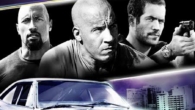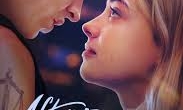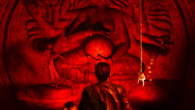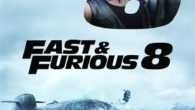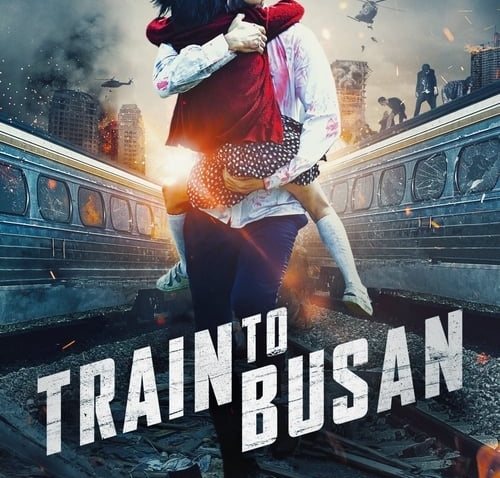
Train to Busan (2016)
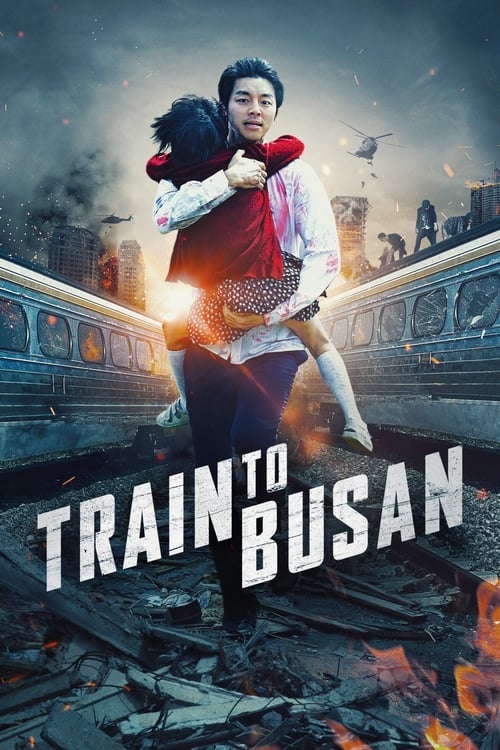
A Bullet Train Ride Through Terror: Unveiling Train to Busan (2016)
Train to Busan is a South Korean action-horror film that throws passengers on a harrowing journey amidst a zombie outbreak. Seok-woo (Gong Yoo), a divorced workaholic, reluctantly takes his young daughter Su-an (Kim Soo-an) on a train ride to Busan to visit her mother. Their seemingly ordinary trip is shattered as a mysterious infection rapidly transforms passengers into relentless zombies. Forced to fight for survival amidst the chaos, Seok-woo and Su-an encounter an ensemble cast of characters, each with their own motives and struggles. Train to Busan is a thrilling and emotional ride that explores themes of humanity, sacrifice, and the lengths we go to protect our loved ones.
Details:
- Genre: Action, Horror, Drama
- PG Rating: R (for violence, gore, and language)
- Release Name: Train to Busan (Korean: 부산행; Busanhaeng)
- Tagline: “All aboard for survival.”
- Audio Language(s): Korean
- Runtime: 118 minutes
- Release Date: July 16, 2016 (South Korea)
- Production Company: Next Entertainment World, The Lamp
- Movie Trailer Link:
Cast of Train to Busan
- Gong Yoo: Gong Yoo delivers a powerful performance as Seok-woo, a self-centered businessman forced to confront his paternal instincts in the face of the apocalypse.
- Kim Soo-an: Kim Soo-an shines as Su-an, Seok-woo’s intelligent and resilient daughter, who serves as a beacon of hope amidst the chaos.
- Ma Dong-seok: Ma Dong-seok brings charisma and strength to the role of Sang-hwa, a selfless businessman who steps up to protect his pregnant wife and others.
- Jung Yu-mi: Jung Yu-mi portrays Sang-hwa’s pregnant wife, Seong-kyeong, showcasing vulnerability and unwavering maternal love.
The film boasts a talented cast who portray relatable characters facing impossible choices, adding depth and emotional weight to the fast-paced action sequences.
The Crew Behind Train to Busan
- Director: Yeon Sang-ho, known for his animated films, delivers a masterfully crafted live-action debut with Train to Busan, showcasing his talent for building suspense and emotional resonance.
- Writers: Park Joo-Suk and Yeon Sang-ho co-write a gripping script that seamlessly blends action, horror, and social commentary.
- Cinematographer: Kim Hyung-ku captures the claustrophobic atmosphere inside the train and the desperate struggle for survival unfolding within.
- Visual Effects: The film’s impressive visual effects create realistic and terrifying zombie visuals, elevating the horror experience.
The skilled crew behind Train to Busan utilizes their talents to create a visually stunning and emotionally engaging film that has captivated audiences worldwide.
Filming Locations of Train to Busan
While the exact filming locations haven’t been officially revealed, Train to Busan’s action likely unfolded across sets and real-life locations:
- High-Speed Rail System: The film incorporates scenes shot on high-speed train sets, replicating the KTX (Korea Train Express) for a sense of authenticity.
- Train Stations: Establishing shots of bustling train stations, possibly in Busan or other major South Korean cities, set the stage for the journey’s normalcy before the outbreak.
- Rural Landscapes: Scenes showcasing the train passing through scenic Korean countryside might have been filmed on location or recreated with the help of green screens.
The use of these diverse settings adds to the film’s realism and amplifies the sense of isolation and danger faced by the characters.
The Soundtrack of Survival: Music in Train to Busan
The music in Train to Busan is a powerful and emotional force, perfectly complementing the film’s on-screen action:
- Thrilling Orchestral Scores: Tense and suspenseful orchestral pieces escalate during action sequences and moments of danger, keeping the audience on the edge of their seats.
- Haunting Melodies: Eerie and melancholic melodies underscore the bleak reality of the zombie apocalypse, adding a layer of emotional depth.
- Poignant Diegetic Music: The use of existing music, such as Su-an’s favorite song “Aloha” by Cho Yong-pil, adds a touch of normalcy and poignancy amidst the chaos.
Composer Mowg creates a dynamic soundtrack that heightens the emotional impact of the film, seamlessly blending orchestral power with moments of quiet reflection.
Fact vs. Fiction: Unveiling the Story Behind Train to Busan
While Train to Busan is a fictional narrative, it draws inspiration from various sources:
- Global Pandemic Fears: The film taps into anxieties surrounding viral outbreaks and societal collapse, resonating with audiences in a world facing real-world health threats.
- Korean Social Commentary: The film subtly critiques social class divisions and the “every man for himself” mentality that can emerge during crisis situations.
- Fast-Moving Zombie Genre: Train to Busan reinvigorates the zombie genre with its fast-paced action sequences and focus on human drama.
The film utilizes these elements to create a thrilling and thought-provoking cinematic experience that transcends the typical zombie movie tropes.
Box Office Bonanza: The Commercial Success of Train to Busan
Train to Busan became a global phenomenon:
- Domestic Domination: The film shattered box office records in South Korea, becoming the highest-grossing Korean horror film of all time at the time of its release.
- International Acclaim: Train to Busan garnered critical acclaim worldwide, receiving praise for its action sequences, emotional core, and social commentary.
- Remake Potential: The film’s success spawned Hollywood remake discussions, highlighting its universal appeal and potential for a wider audience.
Train to Busan’s commercial success solidified its place as a modern classic in the zombie genre and cemented South Korea’s position as a leading force in action cinema.
Reviews Roundup: Is Train to Busan Worth Watching?
Here’s a glimpse of what critics and audiences are saying about Train to Busan:
Social Media Buzz:
- “A zombie movie with heart! Train to Busan is a must-watch for fans of action and horror.” – @FrightFest (Twitter)
- “More than just a zombie flick, Train to Busan is a touching story about family and sacrifice.” – Sarah Jones (Moviegoer)
Critical Reception:
- “A masterfully crafted genre film with stunning visuals and a surprisingly emotional core.” – Rotten Tomatoes (Critic Consensus)
- “Train to Busan is a thrilling and thought-provoking ride that will stay with you long after the credits roll.” – The New York Times (Review)
- “A zombie apocalypse film with brains (pun intended) and heart. Don’t miss it!” – The Guardian (Review)
While some might find the violence intense, the overall praise for the film’s action, characters, and emotional resonance suggests it’s a worthwhile watch for fans of the genre and anyone seeking a thrilling and thought-provoking cinematic experience.
Train to Busan vs. Similar Films: A Clash of the Undead
Train to Busan stands out from the zombie crowd, but it shares some thematic similarities with other popular films:
Train to Busan vs. World War Z (2013):
- Scale: World War Z depicts a global zombie outbreak on an epic scale, while Train to Busan focuses on a more confined setting, intensifying the claustrophobic atmosphere.
- Action Sequences: Both films feature impressive action set pieces, but Train to Busan leans more towards hand-to-hand combat and survival tactics.
- Character Focus: World War Z focuses on a former UN employee navigating the global crisis, while Train to Busan prioritizes the emotional journey of a father and daughter.
Train to Busan vs. 28 Days Later (2002):
- Infection Details: Train to Busan features a fast-spreading rage virus, while 28 Days Later presents a more slow-acting but equally deadly rage infection.
- Social Commentary: Both films explore themes of societal breakdown and the struggle to maintain humanity in the face of crisis.
- Visual Style: 28 Days Later utilizes a gritty and handheld camerawork, while Train to Busan features a more polished visual aesthetic.
Train to Busan vs. Shaun of the Dead (2004):
- Genre Approach: Shaun of the Dead blends zombie horror with humor, while Train to Busan takes a more serious and dramatic approach.
- Social Satire: Shaun of the Dead cleverly satirizes social norms and pop culture references, while Train to Busan focuses on social commentary regarding class and human behavior.
- Pacing: Shaun of the Dead adopts a more lighthearted and comedic pace, while Train to Busan is a fast-paced and suspenseful thriller.
Train to Busan vs. Dawn of the Dead (1978):
- Social Commentary: Both films utilize the zombie apocalypse as a backdrop to explore social issues like consumerism and class conflict.
- Character Development: Dawn of the Dead features a larger ensemble cast with more fleshed-out personalities, while Train to Busan focuses on a smaller group of core characters.
- Special Effects: Considering the different eras of filmmaking, Dawn of the Dead utilizes practical effects for a more grounded approach, while Train to Busan showcases impressive CGI-enhanced visuals.
While each film offers a unique take on the zombie genre, Train to Busan’s blend of action, emotional depth, and social commentary makes it a standout entry among its undead brethren.
Where to Watch/Download Train to Busan: Streaming Service Showdown
Finding Train to Busan to stream can be tricky, as availability can change depending on licensing agreements. Here’s a table outlining some popular streaming platforms and whether they currently offer the film (as of May 21, 2024):
| Streaming Platform | Train to Busan Availability |
|---|---|
| Netflix | Available |
| Hulu | unconfirmed |
| Amazon Prime Video | Available |
| Disney+ Hotstar | Available |
| HBO Max | unconfirmed |
Additional Options:
- Digital Retailers: Train to Busan might be available for digital rental or purchase on platforms like iTunes, Google Play, or YouTube Movies.
- Physical Media (DVD/Blu-Ray): You can purchase a physical copy of Train to Busan on DVD or Blu-Ray for your personal collection.
Conclusion: A Thrilling Ride Awaits
Train to Busan is a film that will keep you on the edge of your seat from start to finish. Its action-packed sequences, emotional core, and thought-provoking themes make it a must-watch for fans of the genre and anyone seeking a truly memorable cinematic experience. While streaming options might be limited at the moment, Train to Busan is definitely worth seeking out through rental, purchase, or physical media. So, dim the lights, grab some popcorn, and prepare for a thrilling journey aboard the Train to Busan!

